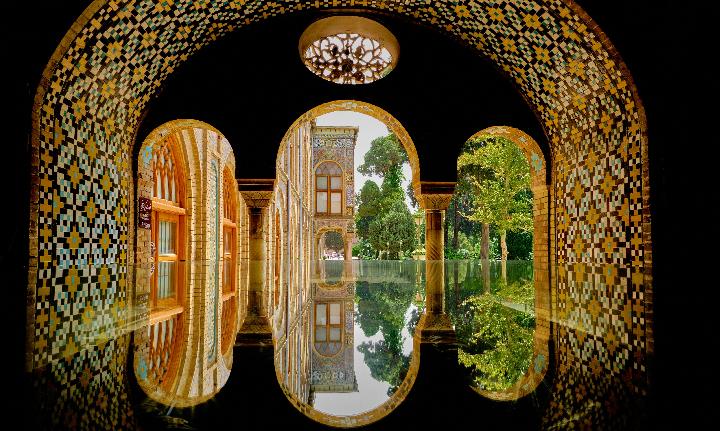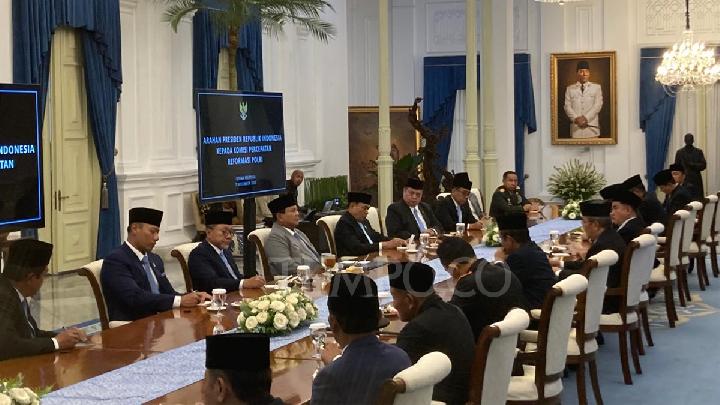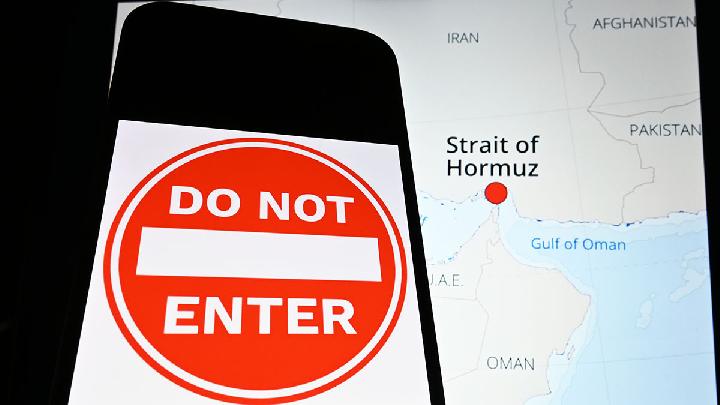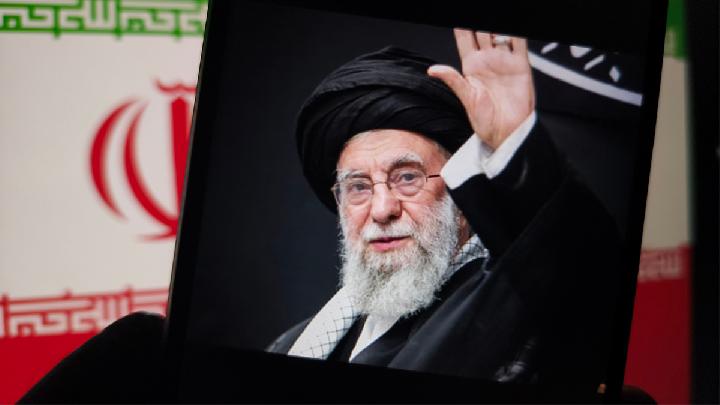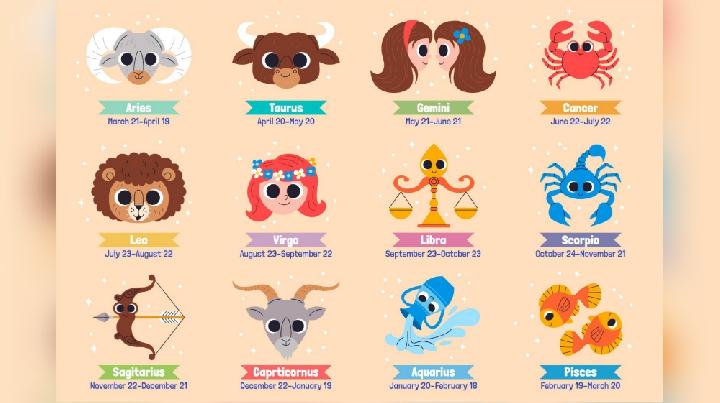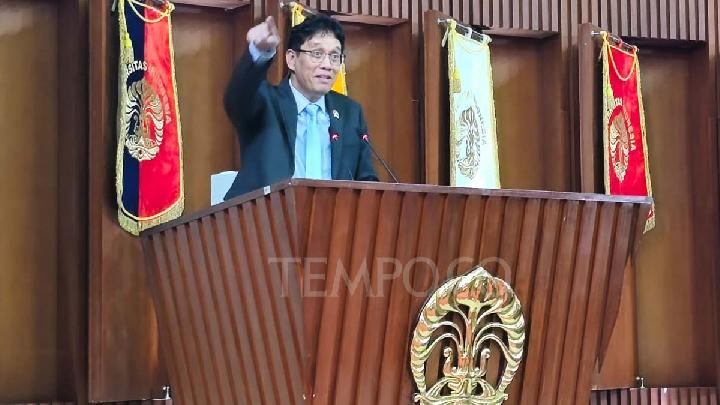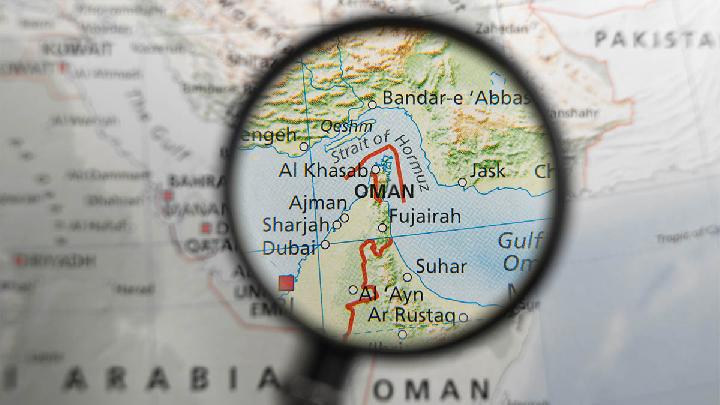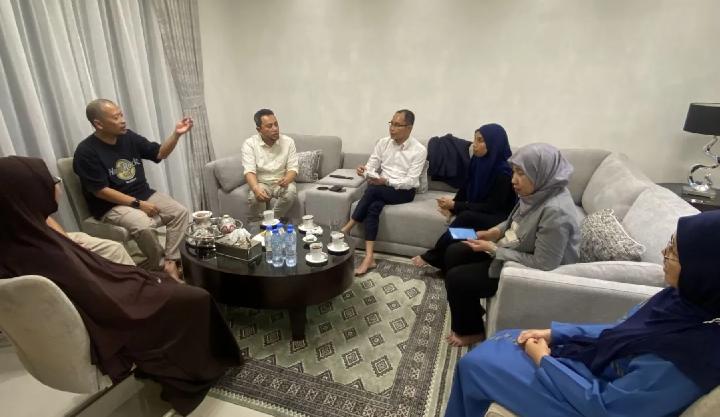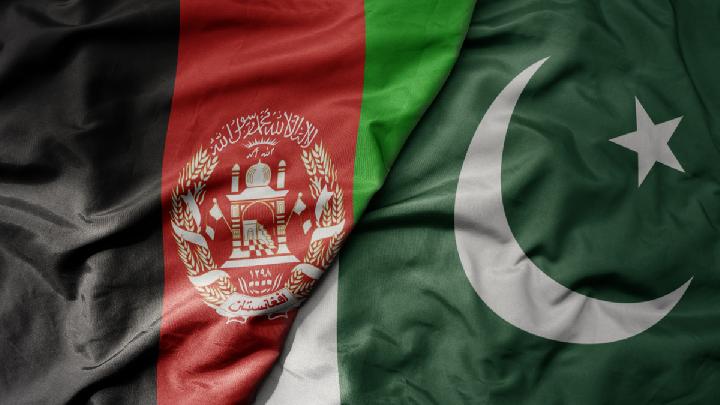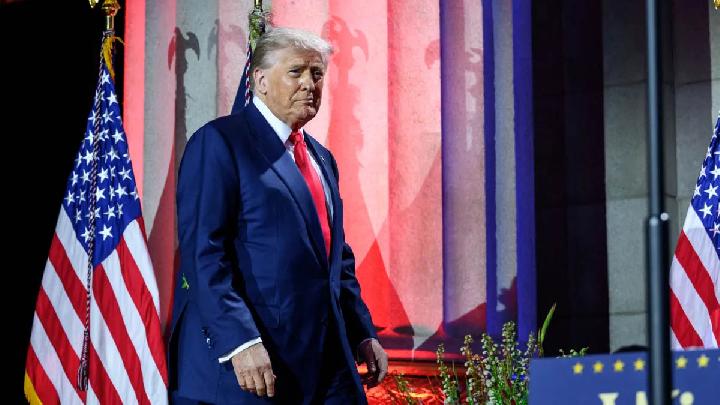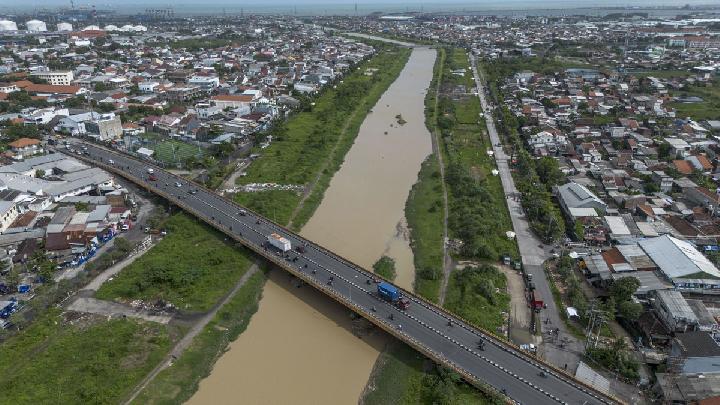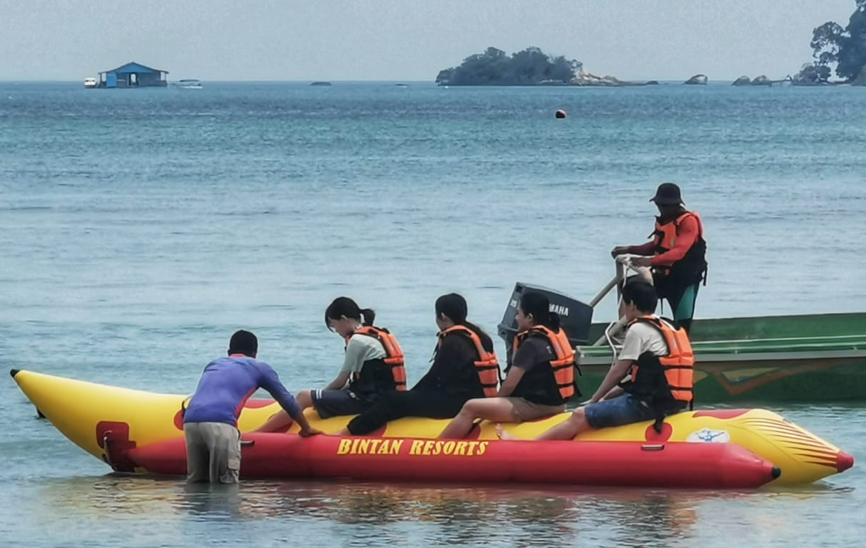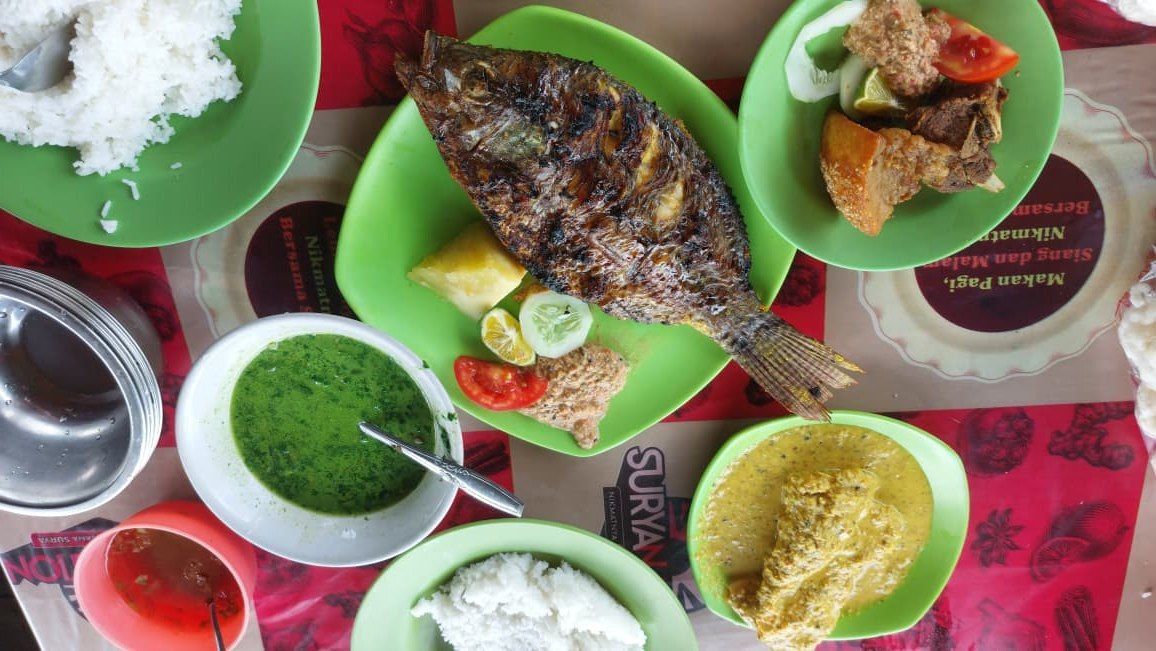TEMPO.CO, Jakarta - As Egyptian President Abdel-Fattah el-Sisi visited Brussels for the first official summit between Egypt and the European Union, the bloc unlocked billions in EU aid and investments to strengthen economic cooperation with the country, a key player in the Middle East.
Officials signed off on a memorandum of understanding worth a whopping €4 billion ($4.66 billion) in financial investments, part of a strategic €7.4 billion partnership signed in March 2024.
Wednesday's summit was held a week after several European leaders, including European Council President Antonio Costa, flew to the Egyptian resort of Sharm el-Sheikh to attend the signing of Donald Trump's Gaza plan, with the ceasefire and eventual reconstruction of the enclave high on Europe's agenda. In Brussels, Costa commended Egypt for its "vital stabilizing role across the wider region," calling the country a "leading voice in the global scene."
The EU's public embrace of el-Sisi, however, has irked activists like Human Rights Watch, which has called out Egypt's "systematic
repression" of dissenting voices. Claudio Francavilla, associate director for EU advocacy at Human Rights Watch, told DW the EU's money was "bankrolling authoritarianism to keep migrants and asylum-seekers away from Europe's shores."
But experts said Wednesday's summit has turned a page in the EU's relationship with the leader, who came to power in a 2013 coup that the bloc condemned at the time.
"The EU laid out a red carpet for Sisi," Kristina Kausch, deputy managing director of the German Marshall Fund of the United States think tank, told DW by phone. "The reluctance that the EU had [in dealing with an authoritarian leader] is gone, and the summit represents that."
El-Sisi claims credit for drop in migration to Europe
At Wednesday's summit, the two sides discussed the future of Gaza and cooperation in scientific research via Egypt's inclusion in the EU's flagship multibillion euro Horizon program.
Trade and investments were in focus, as el-Sisi outlined Egypt as a perfect destnation for European investments in sectors including pharmaceuticals, vaccines and green energy. Ukraine was also on the agenda, with talks on how to apply pressure on Russia to come to the table for talks to end its ongoing war.
In a meeting with the EU's top diplomat, Kaja Kallas, the Egyptian president claimed credit for the drop in numbers of migrants coming to Europe.
"Europe hasn't been significantly affected by illegal immigration" because Egypt managed to stop them, he told Kallas. As part of the €7.4 billion partnership signed last year, the EU offered support to help Egypt combat people smuggling and strengthen border security.
Analysts have said the idea behind the support was to strengthen Egypt's economy and — primarily — to contain an influx of migrants from Egypt itself. Egypt has been reeling under high inflation and rising cost of living, and Egyptians have been among the millions of migrants flocking to Europe in recent years.
"There haven't been large numbers of migrants leaving directly from Egypt and going to Europe," Anthony Dworkin, a North Africa expert at the European Council on Foreign Relations, told DW. "Egypt has maintained relatively good control [of its maritime borders]", he added.
According to the latest data from Frontex, the EU’s border agency, irregular migration into the EU fell by 21% in the first eight months of this year compared to the year before, and 52% from the same period in 2023.
An analysis in The Economist published in late September attributed the drop to heightened surveillance of its external borders and a patchwork of agreements between the EU and countries like Egypt but also Tunisia, under which aid and investments have been offered in exchange for cutting migration. However, those agreements have also been criticized for turning back migrants before they even set foot in the EU.
Can Egypt help the EU with Gaza?
In the Rafah border crossing, Egypt offers the only non-Israeli entry point into Gaza and could prove essential to facilitating the delivery of relief and reconstruction material the EU is keen to send. But the Israeli military controls the crossing, and has continued to block access despite Israel's announcement that it would reopen more than a week ago.
In their joint statement following the talks, the EU welcomed Egypt's mediation role between Israel and Hamas and called for "safe, rapid, and unimpeded humanitarian access" to the enclave.
"Guaranteeing the provision of full humanitarian assistance to the Gaza Strip, with a central role for the UN and its agencies, including UNRWA, constitutes a core EU and Egyptian priority," it said. Speaking after the talks, European Commission President Ursula von der Leyen said the EU knew it could "count on Egypt's active support" for its planned Palestine Donor Group to help fund reforms and support to the Palestinian Authority.
Paul Taylor, a senior visiting fellow at the European Policy Centre, said the road to the EU's ambition to remain politically relevant in the Israel–Palestine conflict and to keep the UN's role intact now goes through Arab states like Egypt.
"The EU aspires to help on the political front as well," and not just with aid, said Taylor. "That very much depends on the cooperation with Arab leaders such as President el-Sisi.
"If the Europeans are to have some influence, they need to work together with the Arab states," he added. The Europeans, together with the Arab states, could look out for the interests of Palestinians in the region, and have a say on "who sits where and who does what [in Gaza] and about the sequence of reconstruction and disarmament [of Hamas]."
The Europeans want a seat in the new international transitional body called the "Board of Peace" headed by the US president, said Taylor, and that is something he believes von der Leyen likely brought up in the meeting with el-Sissi.
Human rights 'sidelined' over 'stability,' say observers
While the EU has been keen to promote its cooperation with Egypt, human rights organizations remain appalled at the rehabilitation of the Egyptian president.
Francavilla of Human Rights Watch said on paper, the EU had conditioned its financial support on Egypt's "concrete and credible" progress in human rights and democratic reform. But in practice, "it set no measurable benchmarks, and shows little concern for Egypt's ongoing repression."
Francavilla further cast a shadow on whether European investments were even helping Egyptians. The deal, he said, "rewards authoritarian 'stability' while ordinary Egyptians pay the price, unable to hold their rulers to account for its abuses or the opaque use of public funds."
Nearly a dozen human rights organizations, including HRW, said despite the upgrade in ties with the EU "violations of Egyptians' economic and social rights have continued without serious course correction."
They claimed around 6,000 people were sent to trial in connection with terrorism-related offenses in Egypt this year, many merely for exercising their human rights. "Enforced disappearance, torture and extrajudicial executions by security forces continue unabated in near-complete impunity," they said.
But there was no criticism of the Egyptian government during the summit, with the closing statement only briefly mentioning a "shared commitment" to "universal values of democracy, the rule of law and respect for human rights and fundamental freedoms."
A European Commission spokesperson told DW that human rights were discussed during the summit, without providing further details. But observers criticized the EU for once again backing stability over democracy in the Middle East and North Africa region.
"The EU considers Egypt as an island of stability in a volatile region," said Kausch of the German Marshall Fund. "Despite the fact that it is a dictatorship, Egypt remains an effective security collaborator.
"Human rights have been sidelined, sad as it is."
Editor’s Choice: What Role for Arab Powers in Shaping Post-War Gaza?
Click here to get the latest news updates from Tempo on Google News



